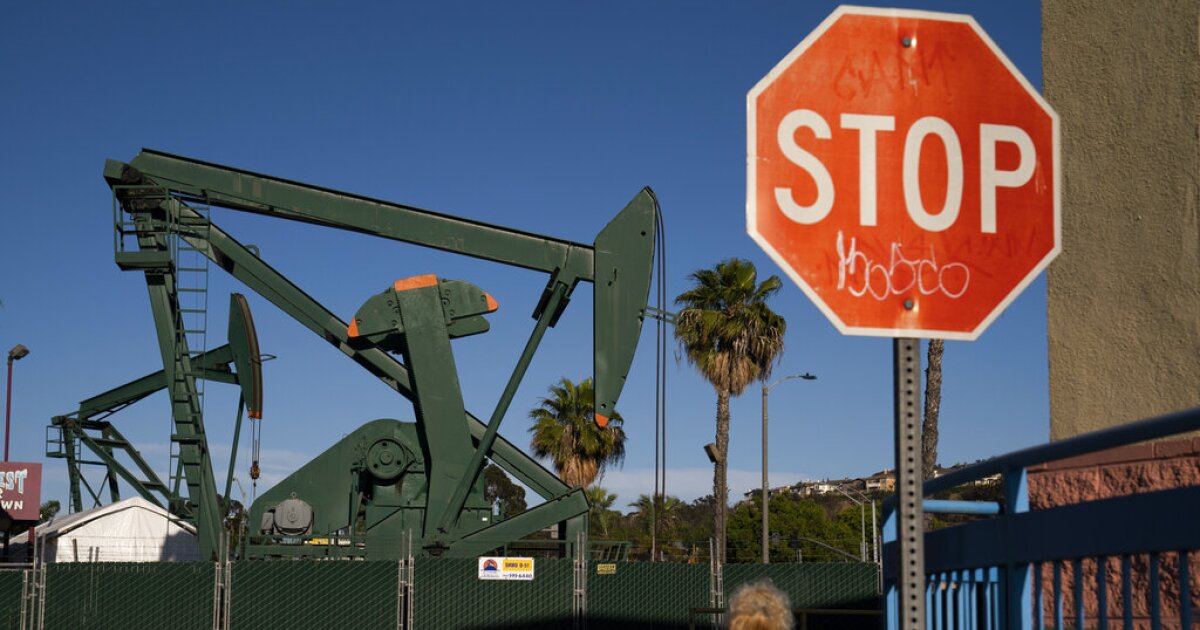

Republicans and Democrats in Congress want to cut off foreign countries’ access to crude oil from the Strategic Petroleum Reserve after China, India, and others bought up barrels that some lawmakers said should have stayed home.
The parties have largely diverged over the wisdom of President Joe Biden‘s use of the SPR, the centerpiece of his strategy to alleviate high fuel prices. But two recent and otherwise competing legislative proposals from House Energy and Commerce Chairman Frank Pallone (D-NJ) and Sen. Dan Sullivan (R-AK) would both restrict the sale and export of oil from the SPR.
ABOUT THOSE CALIFORNIA GAS PRICES NOTED BY BIDEN YESTERDAY
It would be a major change for the reserve, as current law permits non-U.S.-based operators to bid on SPR crude oil or to otherwise purchase it from traders who have acquired it — something that has been occurring with oil released under Biden’s direction to the irritation of some lawmakers who oppose the prospect of product going abroad while prices remain high domestically.
Reuters reported in July that cargoes of SPR crude oil were headed to China, India, Italy, and the Netherlands. In some cases, U.S.-based companies, including Phillips 66, bought and then shipped those barrels abroad.
In others, foreign-based companies such as Atlantic Trading & Marketing, a subsidiary of French oil major TotalEnergies, received the barrels and shipped them abroad.
The exports to China especially angered Republican lawmakers, who criticized the administration for overseeing exports to geopolitical foes when oil was needed at home.
The Buy Low and Sell High Act, which Pallone introduced on Sep. 26, would seek to limit such transactions to a degree. It provides that the secretary of energy “shall prohibit the export or sale of petroleum products” from the SPR to any entity “owned, controlled, or influenced” by China, Russia, Iran, North Korea, or any other country subject to U.S. sanctions.
The bill would also restructure the SPR and give the president new authority to use it as a market intervention tool by creating an “Economic Petroleum Reserve” within the reserve to be used whenever prices are above $90 per barrel.
The Buy Low and Sell High Act “helps us regain control of domestic gas prices and protects drivers from future price fluctuations,” Pallone said.
Sullivan’s bill is also designed to constrain the export of reserve oil but sweeps more broadly than Pallone’s. Under his Replenishing Our American Reserves Act, introduced on Monday, the secretary of energy “shall only draw down and sell petroleum products from the Reserve to entities within the United States.”
The provisions seem to address the prospect of foreign companies putting in bids directly with the Department of Energy for SPR barrels. For example, UNIPEC America, a subsidiary of Chinese oil firm UNIPEC, was awarded contracts for SPR barrels in two separate congressionally mandated SPR sales last year.
It’s not clear, however, how successfully either bill would address the instances of SPR oil being bought by a U.S. company and then sold to a foreign operator, as what happened over the summer.
At least as things stand under the law, the Energy Department explained in July, U.S. companies “are permitted to place bids on SPR crude oil; DOE cannot dictate what selected bidders will do with the SPR crude oil after delivery.”
Some have argued it doesn’t matter that SPR oil goes abroad because the oil market is global, arguing that meeting demand anywhere helps prices everywhere.
“Whether it stays in the United States or goes somewhere else is less important than does it succeed in changing the global balance of supply and demand, because that’s what drives the price,” Mark Finley, a fellow in energy and global oil at Rice University’s Baker Institute for Public Policy, said in July.
Congress created the SPR after the Arab oil embargo to respond to oil market supply disruptions, and Biden has used it to tamp down prices in a tough election cycle where high energy prices are a key issue. The White House also said it may release more oil following OPEC+’s recent decision to cut oil production.
In November 2021, Biden announced his first go at releasing reserve oil. The authorization to sell or exchange 50 million barrels was part of the administration’s effort “to lower prices,” he said.
CLICK HERE TO READ MORE FROM THE WASHINGTON EXAMINER
The White House has since authorized emergency sales of hundreds of millions of barrels from the SPR since the war in Ukraine started in February.
Democrats have praised the move for helping to bring down prices, even encouraging Biden to use it more aggressively, while Republicans continue to accuse Biden of misusing the reserve for his political gain.







